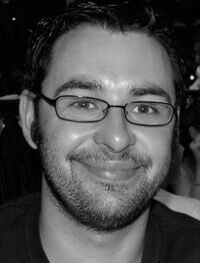University News Last updated 20 July 2012

Dr Robert Lawson, an English lecturer at Birmingham City University, has received a Scottish Studies Fulbright Award to enable him to research at the University of Pittsburgh on one of the most prestigious and selective scholarship programmes operating world-wide.
Created by treaty in 1948, the US-UK Fulbright Commission is the only bi-lateral transatlantic scholarship programme, offering awards for study or research in any field, at any accredited US or UK university.
The Commission is part of the Fulbright programme conceived by Senator J. William Fulbright in the aftermath of World War II to promote leadership, learning and empathy between nations through educational exchange.
Robert received an MA (Hons) in English Language and Linguistics in 2004, an M.Phil (Distinction) in 2005 and a PhD in 2009, all from the University of Glasgow. In 2004, he was the recipient of an Economic and Social Research Council postgraduate scholarship to conduct research on the relationship between language, violence and identity among working-class adolescent males in Glasgow in one of the first ethnographically-informed sociolinguistic accounts of language variation in Scotland.
During his PhD, Robert was awarded a Mac Robertson travelling scholarship, allowing him to undertake a period of overseas research training in linguistic anthropology and urban ethnography at the University of Arizona.
In 2009, Robert joined the School of English at Birmingham City University as lecturer in linguistics. He currently has several publications in print and under review with major journals, including the ‘Journal of Sociolinguistics’ and ‘Gender and Language’.
Commenting on receiving the Award, Robert said: “It’s a privilege to have been chosen and I’m very excited to be part of one of the world’s most prestigious exchange programmes. The Award is a once in a lifetime opportunity to develop my research on urban adolescent language use, to learn from some of the international leaders in sociolinguistics, and to build links between institutions in Scotland, England and America.
“I’m looking forward to being able to share my experiences of living in both Scotland and England with the people I meet in America and to bringing back home a better insight into American culture.”